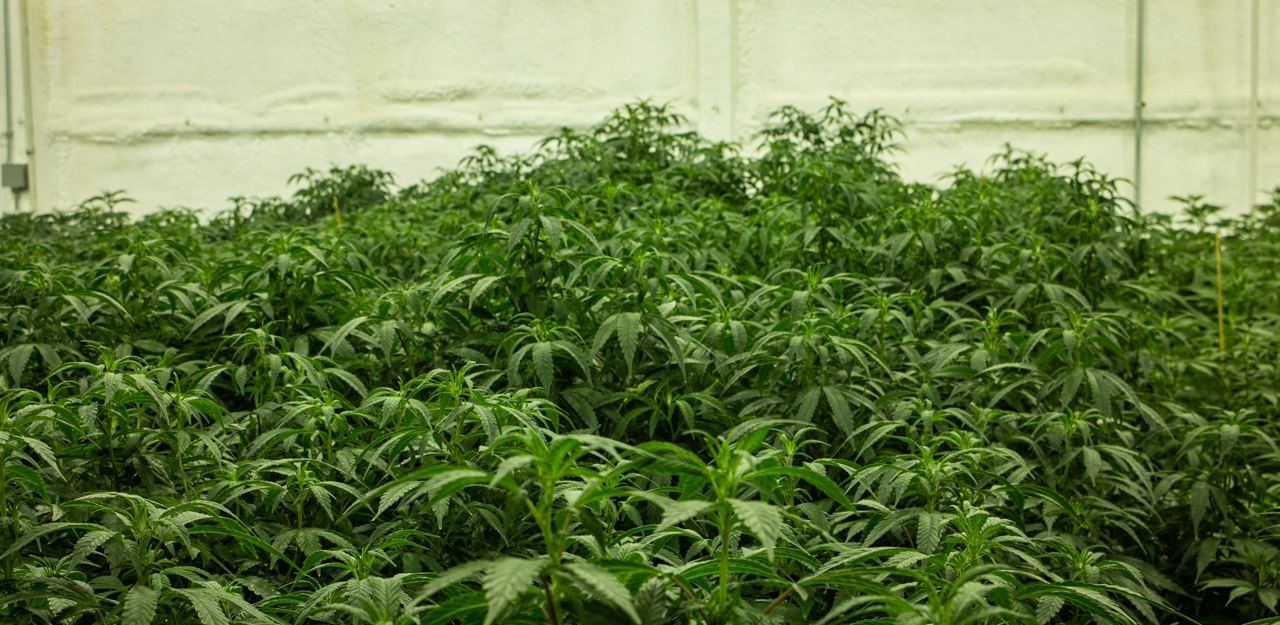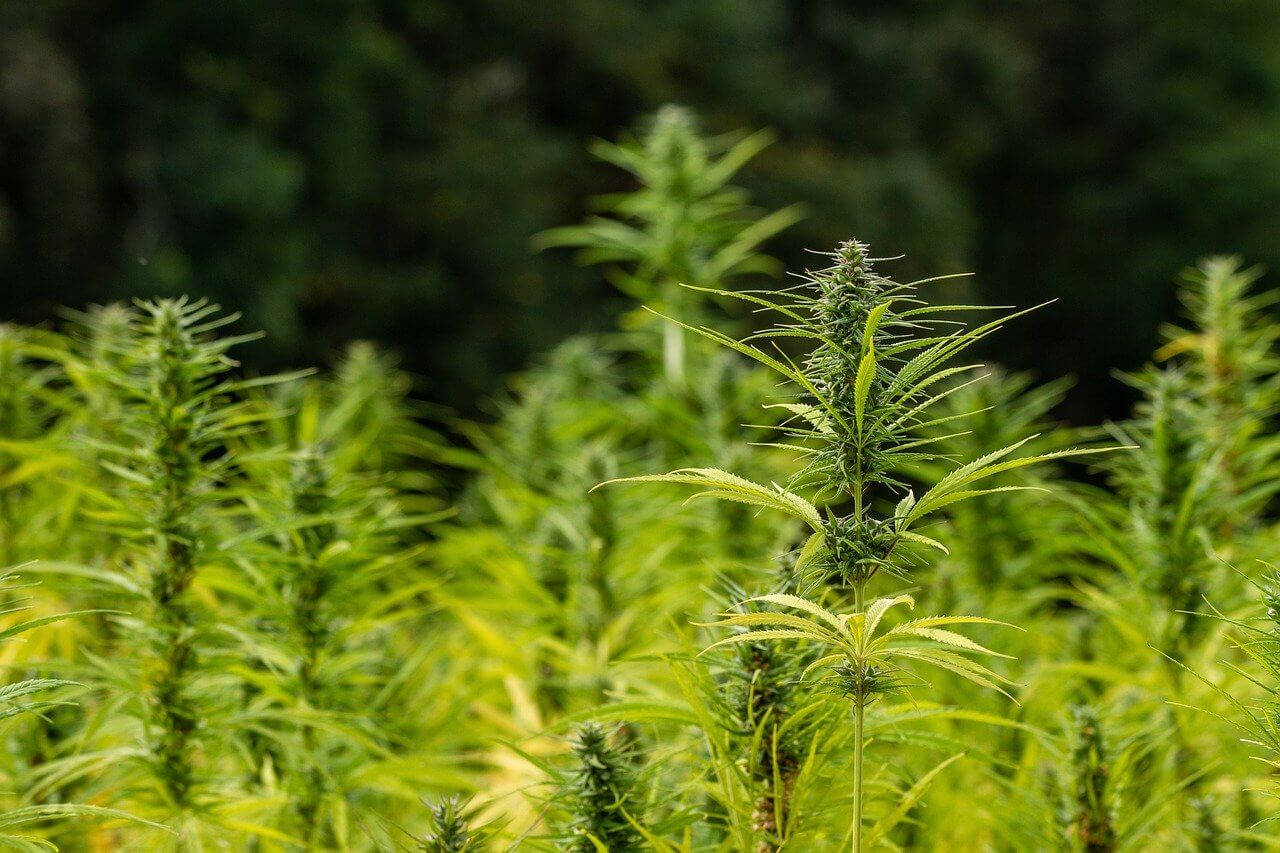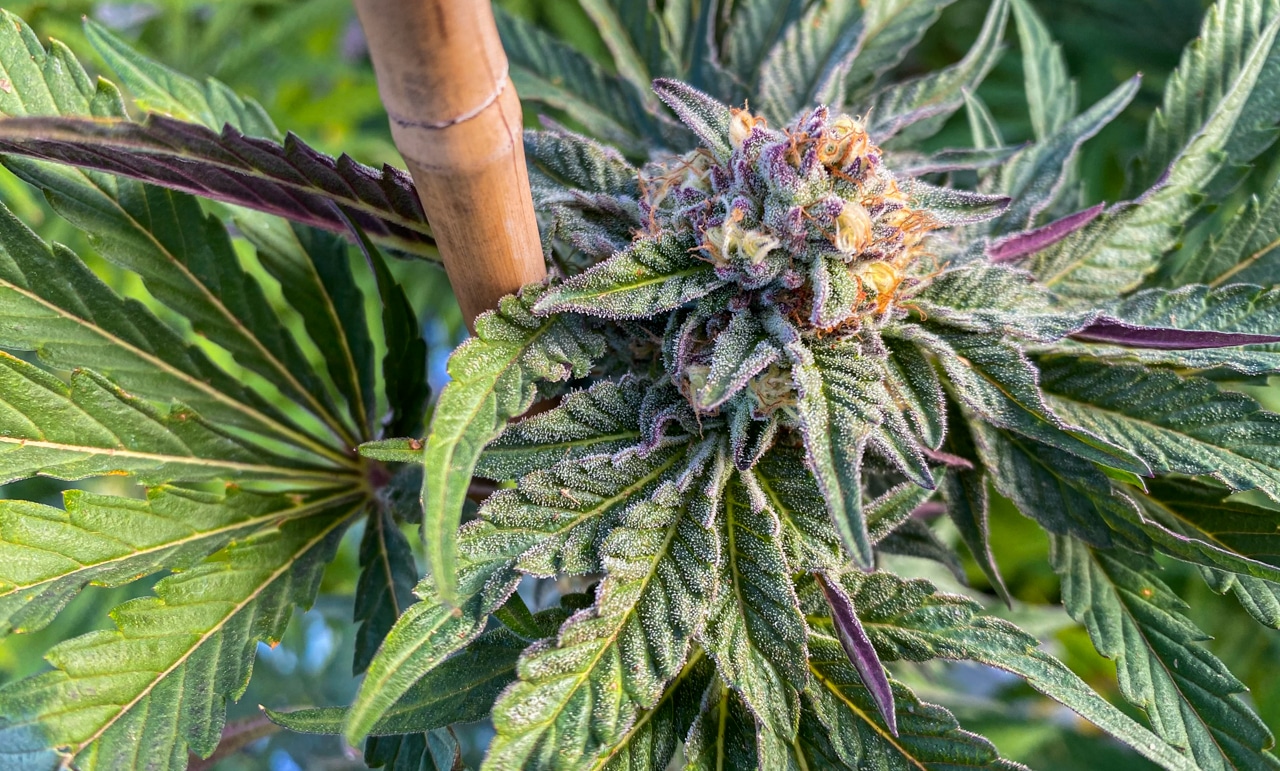![[Denver Post] Oklahoma is the new “Wild West of weed” — and Colorado marijuana entrepreneurs are helping fuel the green rush](https://therealdirt.com/wp-content/uploads/2021/08/TDP-L-Oklahoma-cannabis-RJS-31799.jpeg)
by The Real Dirt | Aug 16, 2021 | 420 Culture & Travel, Blog, Business, Cannabis Business, Cannabis Law, Cannabis Law and Compliance, Culture, Denver Post, Growing, Industry News, Legalization, Medical Marijuana
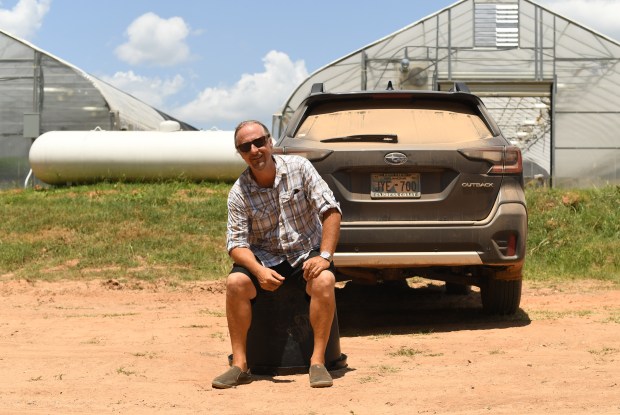
Lax regulation and low barriers to entry have triggered cannabis’s explosive growth in Sooner State
OKEMAH, Okla. — Chip Baker surveyed a vast field on the outskirts of an old hay farm an hour east of Oklahoma City, his ponytail waving in the thick, humid air, his voice growing excited.
“This is probably the largest collection of Squirt in the world!” he boasted, pointing to an array of neatly plotted cannabis plants before him that will soon flower pounds of the popular strain.
Baker would know. From the time he planted his first marijuana plant at 13, he’s been all about growing weed. A dream formed in the Georgia fields took him to Humboldt County, California — the nation’s earliest pot epicenter — then Colorado, the country’s first recreational market.
But it’s here in rural Oklahoma, down a dusty dirt road along the banks of the North Canadian River, where true cannabis cowboys — including droves of Colorado entrepreneurs like Baker — are buying mammoth properties to grow mammoth numbers of plants, all in a quest for mammoth stacks of kush-derived cash.
It’s a place unlike virtually any other in America.
“Other states grow patches,” Baker said with a grin, taking in the 90-acre, 40,000-plant cannabis farm before him. “In Oklahoma, we grow fields.”
The Sooner State, as deeply red as the American political palette will go, has almost overnight become the hottest place in the country to grow marijuana. It’s an unprecedented look at what happens when the government stays largely out of the picture and lets the free market run wild.
And Colorado businesses are pumping their sizeable dollars and cannabis expertise into the state, hoping to cash in on what Baker and others in the industry call the next green rush.
“It’s the Wild West of weed,” he said, “in all its glory.”
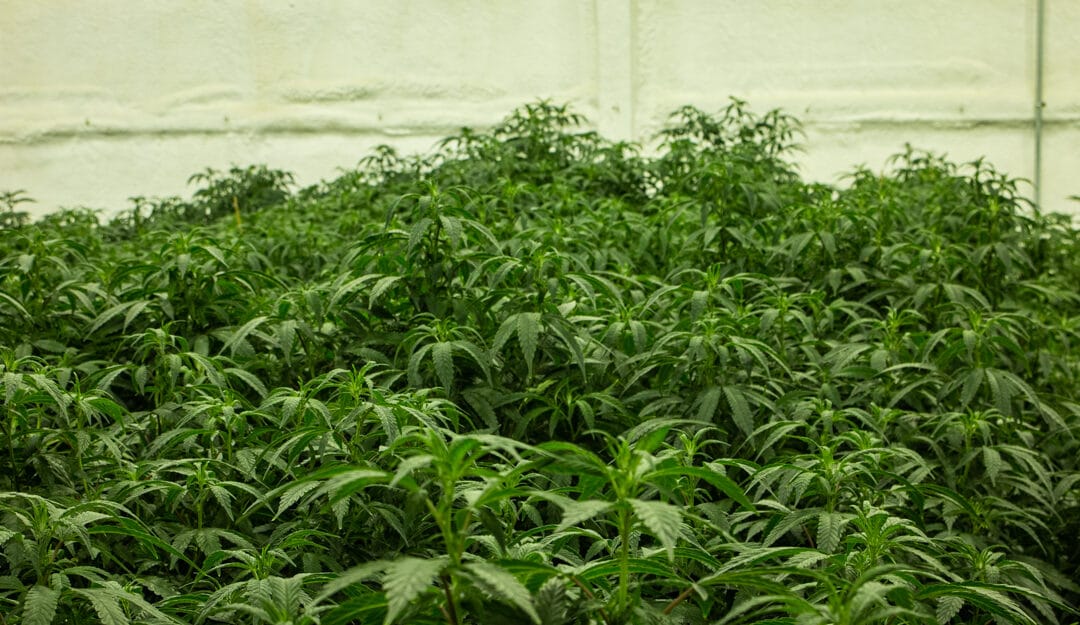
by The Real Dirt | Aug 16, 2021 | 420 News, Blog, Cannabis Law, Cannabis Law and Compliance, Cannabis News, Legalization, Medical Marijuana
A Dothan area oncologist was elected as the chairman of the Alabama Medical Cannabis Commission.
MONTGOMERY, Ala. — The members of the newly formed Alabama Medical Cannabis Commission on Thursday met in a formal session for the first time for an organizational meeting in Alabama’s historic 1859 Capitol Building.
“You truly have a lot of work cut out for you,” Alabama Gov. Kay Ivey told the commission members. “It will be up to you, those who have been appointed by many elected leaders around the state, to establish a criteria for medical cannabis production in Alabama.”
“I can’t urge you strongly enough to keep transparency and efficacy foremost in your mind,” Ivey told the members of the new commission. “The task before you is providing legal use for medical cannabis,” Ivey said. “We simply have to get this right.”
The Alabama Legislature shocked many observers, on both sides of the marijuana debate; when legislators elected to jettison the hotly debated gambling bill and pass medical marijuana legalization in the 2021 legislative session instead. Sen. Tim Melson, R-Florence, had carried the legislation three years in a row, with it finally passing after an 11-hour debate on the floor of the Alabama House of Representatives in May.
The members of the commission voted to make Dr. Steven Stokes the chairman of the commission. Rex Vaughn was voted in as co-chair of the Commission. Stokes then s appointed a subcommittee tasked with searching for an executive director of the commission.
“We have a long way to go and a short time to get there,” Stokes told the commission, quoting from the southern classic: ‘Smokey and the Bandit. The Commission must have a program in place to certify physicians to recommend medical marijuana in place by Jan 1, 2022. Stokes assigned a subcommittee to work on this task.
“We are going to have to meet at least once a month,” Stokes said. Meetings will be “the second Thursday of each month at least through the first of the year until we get organized and up and going.”
“Patient wants this,” Stokes said. “They campaigned for this; but there are also a lot of people who have a problem with this. They are concerned that this would be a gateway for more drug abuse.”“For a cancer patient there is a great benefit,” Stokes, an oncologist from Dothan, said. “But at least half of the homeless have an addiction problem. We don’t want to increase substance addictions.”

by The Real Dirt | Aug 12, 2021 | Blog, Cannabis Law, Cannabis Law and Compliance, Cannabis News, Industry News, Legalization, Medical Marijuana, Politics
Wyoming’s medical cannabis ballot initiative cleared its first major hurdle on Wednesday.
The Wyoming Secretary of State certified the required sponsor signatures to begin the process. Only 100 were needed, supporters of medical cannabis in Wyoming provided 250.
The Libertarian Party, which is backing the initiative, said it now allows supporters to start gathering 41,776 signatures from people across Wyoming. If that is successful, it would qualify to go before voters on the 2022 ballot. The initiative would legalize medical cannabis and decriminalize marijuana for personal use.
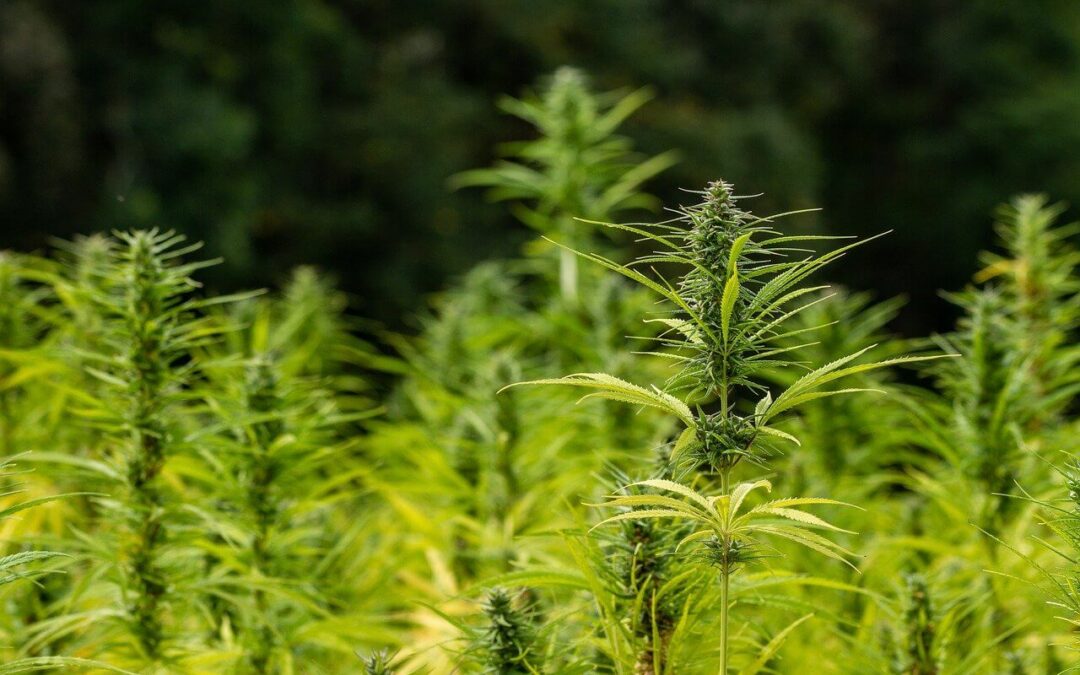
by The Real Dirt | Aug 6, 2021 | Blog, Business, Cannabis Business, Cannabis Law, Cannabis Law and Compliance, Cannabis News, Hemp, Hemp Law
An appeals panel in Texas issued a mixed judgment Thursday in a lawsuit challenging the state’s ban on smokable hemp. Regulators may enforce a ban on the processing and manufacture of products intended for smoking or vaping, the court ruled, but it cannot prevent such products made elsewhere from being sold in the state.
The decision creates a situation in which consumers may be able to freely purchase smokable hemp flower and hemp-derived CBD oils for vaping, but only if the products are produced outside Texas.
Four Texas companies challenged the ban in a lawsuit last year, asking the court to declare the restrictions unconstitutional and allow hemp products intended for smoking or vaping to be produced and sold legally. In response, a state judge eventually put the entire ban on hold, preventing the government from enforcing it until the matter could be resolved in court.
In Thursday’s ruling, a three-justice panel of the Third District Court of Appeals drew a distinction between the processing and manufacturing of smokable hemp—which lawmakers strictly prohibited its production when they legalized hemp in 2019—and distribution and sales, which regulators at the Texas Department of State Health Services (DSHS) forbade under a rule adopted a year later.
Writing for the panel, Justice Melissa Goodwin reasoned that lifting the ban on product sales was justified because the DSHS restriction went beyond the scope of lawmakers’ manufacturing ban.
“The Legislature required that the Department’s rules must reflect the principle that ‘the processing or manufacturing of a consumable hemp product for smoking is prohibited,’ but did not mention retail sale,” the judgment says. “Nevertheless, the Department adopted a rule that banned not only the processing and manufacturing of consumable hemp products for smoking, but also the distributing and retail sale of such products.”
On the other hand, the panel’s ruling will allow lawmakers’ ban on production and manufacturing of smokable hemp products to take effect. Thursday’s ruling reversed a lower court’s decision to prevent the state from enforcing that part of the ban.
“Because the Hemp Companies never provided ‘a plain and intelligible statement of the grounds’ to enjoin the enforcement of rule 300.104’s bans on manufacturing and processing consumable hemp products for smoking, we conclude that the trial court abused its discretion in granting the temporary injunction and enjoining the enforcement of that portion of the rule,” Goodwin wrote.
Advocates in favor of broader legal access to cannabis products emphasized the significance of the court’s decision to allow smokable hemp to be sold in the state. But they lamented the fact that in-state manufacturing of the products will remain illegal.
“The reversal of the ban on distributing and selling smokable hemp products is a big win for Texas farmers and hemp businesses. It is extremely important that regulatory overreach is kept in check so that Texas companies are not prevented from excelling in this market,” Jax Finkel, executive director of Foundation for an Informed Texas, told Marijuana Moment on Thursday. “I am hopeful that manufacture portion of the suit will end in a similar opinion.”

by The Real Dirt | Aug 5, 2021 | 420 News, Blog, Business, Cannabis Business, Cannabis Law, Cannabis Law and Compliance, Cannabis News, Industry News, Legalization, Politics
State law doesn’t prohibit the new licensees from unloading for millions of dollars and potentially “giving it away to the white boys again,” one critic said.
The applicants waited for more than a year for a chance to jump into Illinois’ booming weed industry.
But now that they have won lucrative cannabis licenses to open marijuana dispensaries, craft grow operations or other related businesses, some could sell the licenses before ever opening up — potentially collecting millions in the process.
With the state’s troubled cannabis licensing process careening toward a conclusion, corporatized weed firms and other cash-rich buyers are now expected to go after the new licenses — many of which are slated to go to so-called social equity applicants, a designation created to boost diversity in the lily-white weed industry.
Rickey Hendon, a former state senator who won a dispensary license in last week’s lottery, acknowledged he and other companies are now entertaining a host of proposals to sell to owners with deeper pockets. A court order in a pending lawsuit has, however, blocked the formal issuance of the pot shop permits for now.
“Of course some of the smaller companies are listening to all kinds of offers,” said Hendon, who became a de-facto spokesman for social equity candidates after they were shut out of the initial licensing process a year ago. “I’m listening to all kinds of offers.”
Hendon, who said he is merely exploring his options, believes a cannabis license could fetch between $3 million and $15 million, depending on which statewide region it allows a buyer to set up shop.
An industry source, however, estimated that each of the 185 new pot shop permits is likely worth much less, between $1 million and $3 million. The source pegged the going rate at $4-$5 million for each of the 40 new craft cultivation licenses, which were announced last month along with other permits to infuse and transport cannabis products.
But critics say the potential massive selloff goes against the spirit of the legalization law and the recent trailer bill Hendon helped write, both of which went to painstaking lengths to give people of color ownership in the highly profitable industry. What’s more, some fear predatory forces will attempt to take advantage of social equity firms trying to turn a quick profit.
Edie Moore, a fierce proponent of diversifying the industry who serves as the executive director of Chicago NORML, a marijuana advocacy group, couldn’t hold back her frustrations about the prospect of social equity firms now dumping cannabis licenses so many in the state fought hard to get to them.
“I’m not upset for people who want to get a payday. But I thought that they had got into this business to be in this business, not to just make a quick buck,” said Moore, who helped write the latest pot law and has already won a dispensary permit.
“That’s what we were fighting for,” she added. “For people to build generational wealth on owning and building and creating something within their communities, not giving it away to the white boys again.”
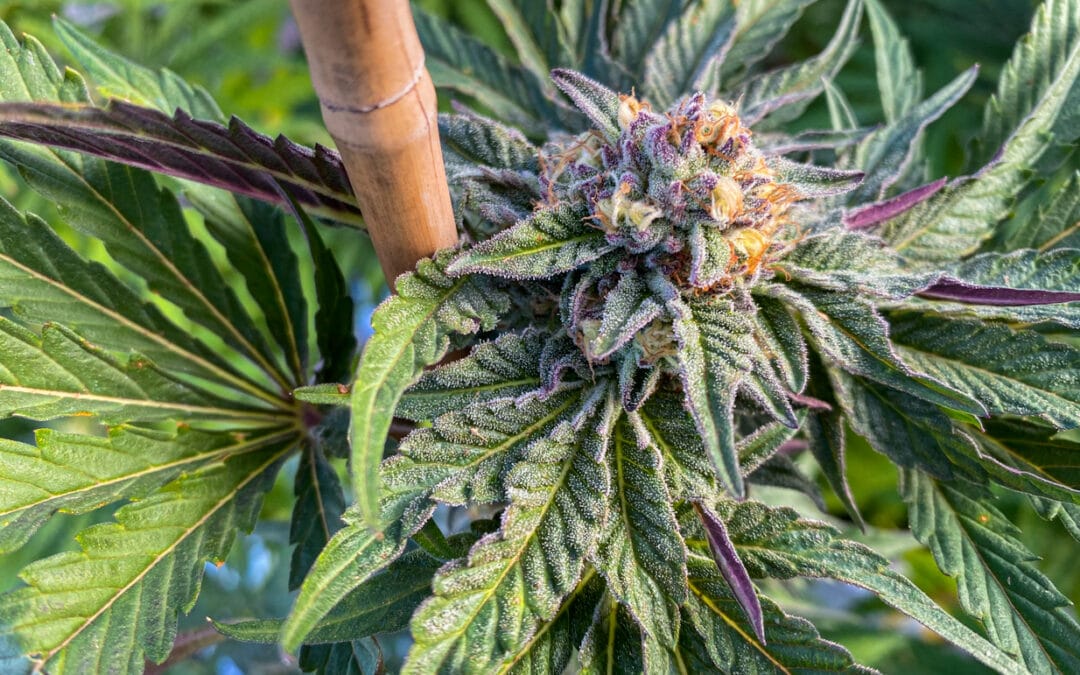
by The Real Dirt | Aug 2, 2021 | 420 News, Blog, Cannabis Law, Cannabis Law and Compliance, Cannabis News, Legalization, Politics
Reps. Casey Weinstein (D) and Terrence Upchurch (D) filed the legislation, weeks after circulating a co-sponsorship memo to colleagues to build support for the measure.
The 180-page bill would legalize possession of up to five ounces of cannabis for adults 21 and older and allow them to cultivate up to 12 plants for personal use. It also includes provisions to expunge prior convictions for possession and cultivation activities that are being made legal under the measure.
A 10 percent excise tax would be imposed on marijuana sales, with revenue first going toward the cost of implementation and then being divided among municipalities with at least one cannabis shop (15 percent), counties with at least one shop (15 percent), K-12 education (35 percent) and infrastructure (35 percent).
“It’s time to lead Ohio forward,” Weinstein said in a press release. “This is a big step for criminal justice reform, for our veterans, for economic opportunity, and for our individual liberties.”
The state Department of Commerce would be responsible for overseeing the program and issuing cannabis business licenses.
Individual municipalities could restrict the type and number of marijuana that operate in their area. The bill specifically states that the state’s existing medical marijuana program would not be impacted by the establishment of an adult-use market.
“This bill is much needed in Ohio, and it’s time for Ohio to become a national leader in marijuana decriminalization and legalization,” Upchurch said. “This bill is more than just about legalization, it’s about economic and workforce development, it’s about decriminalization, and it’s about healthcare! The time is now, and I look forward to getting this done in a bipartisan fashion.”
Gov. Mike DeWine (R) is likely to oppose the effort given his record, but activists have effectively demonstrated through local initiatives that voters in the state broadly support enacting a cannabis policy change.
A newly formed organization called the the Coalition to Regulate Marijuana Like Alcohol (CTRMLA) is also actively collecting signatures for a statewide ballot measure that would separately force lawmakers to consider taking up legalization legislation once a certain signature gathering threshold is met.
![[Denver Post] Oklahoma is the new “Wild West of weed” — and Colorado marijuana entrepreneurs are helping fuel the green rush](https://therealdirt.com/wp-content/uploads/2021/08/TDP-L-Oklahoma-cannabis-RJS-31799.jpeg)


